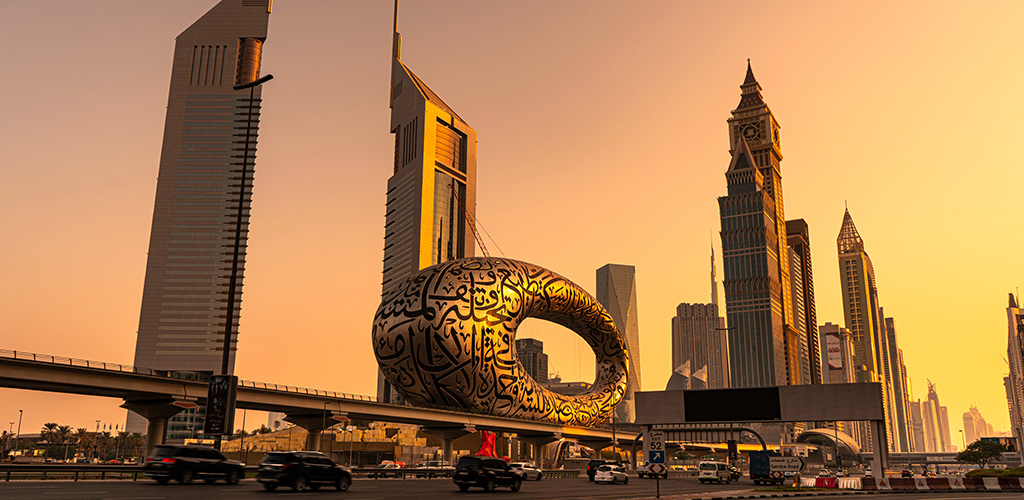Nov 03 | 2020
Crisis Brings GCC Recruitment Challenges into Focus

 By Simon West
By Simon WestThe energy-based, project-driven economies of the Middle East have been hit hard by the twin shocks of Covid-19 and record-low oil prices.
The rocky road to recovery starts now, and although too early to fully understand the long-term impact on jobs, the crisis has brought changing employment patterns in the Gulf Cooperation Council countries into sharp focus.
Well before Covid-19 struck, the reputation of the Gulf Cooperation Council, or GCC, states – Saudi Arabia, Qatar, Oman, Kuwait, Bahrain and the United Arab Emirates – as high-paying, tax-free hotspots was on the wane.
Since the last economic downturn five years ago, professionals in the region have seen their salaries frozen and generous benefit packages cut as cost-conscious companies tightened their belts to stay competitive.
Workforces have been trimmed, executive jobs have been localized and value-added tax has been introduced.
The party, it seemed, was already coming to an end.
“Salaries and day rates have not returned to the previous highs, and given the current instability, this will probably remain the case,” said James O’Neill, Oman country manager for UK-based oil, gas and energy recruitment firm Petroplan.
Fears though that declining compensation packages would trigger a mass expat exodus may have been premature, particularly in states such as the UAE, Qatar and Bahrain, where non-nationals make up the bulk of the labor force.
In much of the region, lower rents and living costs have offset stagnant earnings, while foreign workers are still exempt from paying income tax.
According to O’Neill, the Middle East remains a desirable destination for expat professionals. But given the cutback in perks such as housing, healthcare cover and education allowances for children, the type of candidate choosing to move to the GCC is changing.
“It is partly true to say that the expat workforce is getting younger, and our experience shows that more people are coming to work in the Middle East on a single status basis with the family remaining in their home country,” O’Neill said.
Local Content Challenges
Candidate profiles are also evolving due to a region-wide localization drive that may intensify as part of post-pandemic economic stimulus plans.
Throughout the GCC, states have put into place initiatives designed to boost local content in the private sector, forcing industries such as breakbulk and project cargo to pay closer attention to the staff they hire and the contractors they do business with.
Some countries have been more demanding than others.
Saudi Arabia’s sweeping Saudization program, for example, grades firms according to the number of Saudi nationals in their ranks, while in the UAE, an in-country value program launched two years ago by the Abu Dhabi National Oil Co., or ADNOC, aims to spur opportunities for local suppliers and expand the private sector’s role in developing the local economy.
“You get incentives if you hire a local Emirati in Abu Dhabi, but it is not that you need to actually hire Emiratis,” said Steffen Behrens, UAE country manager at specialized logistics firm deugro. “In Saudi Arabia, and in Oman it is the same, you are being forced in certain positions to hire locals otherwise you will not actually get the license, or you will not be able to bid for certain contracts and projects.”
Companies looking to recruit locally – either to cover a departing expat or to comply with local content rules – face a number of challenges.
Despite government efforts to boost the desirability of private sector employment, many nationals in the GCC still opt for a career in the public sector, where jobs can be more secure, wages more competitive and working weeks shorter.
Salary expectations for nationals are often unrealistic, while skills shortages in many industries mean some companies struggle to replace expat talent.
“We were lately looking for a senior position in our UAE organization and we really looked into the market as to what was available, to actually find somebody suitable and maybe even consider an Emirati,” Behrens said.
“But the result of that was no. First of all we were not able to find somebody that met the kind of criteria we were looking for. And secondly the issue was that even if we had somebody that was able to present the kind of CV we were looking for, the salary expectation was just not as per our budget and not as per what we would traditionally be paying for such a position. So after a couple of weeks we basically ruled out hiring a national.
“In Oman and Saudi Arabia you will find locals with a decent salary expectation but usually not trained very well. Hence you need to invest a lot of time to get them up to speed in a specific job field such as project logistics.”
Training Needs to the Fore
To address this, and ready the local workforce for private sector careers, GCC countries are investing heavily in education and training, often as part of broader structural reforms focused on long-term economic sustainability.
The Abu Dhabi Economic Vision 2030 for example, an ambitious plan designed to wean the city off oil and gas, calls for an overhaul of its education system to ensure graduates are better prepared for careers in construction, manufacturing and other productive sectors. As it stands, nationals in Abu Dhabi make up just 11 percent of the workforce, according to city government figures.
In Qatar and Kuwait, similar programs to improve education standards have been launched, while governments throughout the Gulf are facilitating study periods abroad or at international universities with satellite campuses in the region.
Companies in the sector are also doing their part to ensure local employees are equipped with the right skills and training to thrive in careers in breakbulk and project cargo logistics.
Belgium-based heavy-lift specialist Sarens – with its Middle East headquarters in Bahrain, the GCC’s smallest state with a population of 1.6 million, of which more than half are non-nationals – has invested heavily in engineering, HR and finance.
According to Philippe Verdeure, Sarens’ managing director for projects in the Asia-Pacific and Middle East region, this has allowed the company to maintain a high localization content that gives it pole position on many projects.
“Particularly in Bahrain, we’re extremely pleased with the quality of education and the skills of the local talents we hire,” Verdeure said. “A certain amount of foreign supervision and guidance, however, is always required. But we do expect that amount to be thinning with time.”
Verdeure also put to flight fears that as recruitment dynamics in the region evolve, the industry may not appeal to local jobseekers.
“Breakbulk and heavy-lifting will always be attractive to a certain portion of the engineering and technical crowd, for sure. Merely for the fact that what we do is unique and often a once-in-a-lifetime operation.”
Still, some organizations are responding to these shifting sands by increasing their level of outsourcing to so-called high-value centers in Asia and Latin America, where skilled manpower for certain positions can be found at a much lower cost.
And as labor markets come under severe pressure from Covid-19, the strategy is likely to rise in the short to mid-term.
“Basically all the design work and the drawings, the material takeoffs, the quantities, the follow-ups – all these things happen through the outsourced entity,” said Mandar Apte, project manager at oil and gas services company TechnipFMC.
“But essential work such as the specifications, the progress reporting, the project management – these kind of things mainly happen from the GCC. Of course it depends on company to company. What is outsourced and what is not is eventually a balance between what the client wants and what the contractor can do. But the trend is that more and more work is being outsourced,” Apte said.
Still Showing Resilience
Project cargo professionals speaking to Breakbulk all underlined the GCC’s resilience, as well as its exciting potential for industrial development over the next decade.
Although hydrocarbon contracts are still likely to dominate, economic transformation plans aimed at attracting foreign investment and diversifying economies away from oil and gas, such as Saudi Arabia’s Vision 2030, are expected to spark billions of dollars of spending in energy, transport infrastructure, mining and other sectors.
In renewables, regional activity is heating up: installed solar and wind capacity could rise 18-fold over the next five years to more than 57 gigawatts, or GW, according to a recent report by U.S.-based market research firm Frost and Sullivan. The expansion will call for US$182 billion of investments, the report said.
Some exciting developments are already underway. The 2-GW Al Dhafra solar energy plant in Abu Dhabi will be the largest single-site photovoltaic project in the world, with operations slated to begin in early 2022, while Saudi Arabia’s first ever utility-scale wind farm, the 400-megawatt Dumat Al Jandal project, located 900 kilometers north of Riyadh in northern Al-Jawf, is also expected to come online in 2022. The facility is being developed by a consortium led by France-based EDF Renewables and UAE green energy firm Masdar.
Events such as Expo 2020 in Dubai, slated to open in October, but put back until October 2021 due to the pandemic, and the 2022 World Cup in Qatar, which is seeing seven new stadiums built from scratch, are also major sources of special project contracts.
“I see things picking up, albeit at a slow pace. But at least it is not a full stop, it is not completely stagnant, things are starting,” TechnipFMC’s Apte said. And when the economy finally recovers, breakbulk and project cargo companies will want to be sure to have the best and brightest talent at their disposal.
Colombia-based Simon West is a freelance journalist specializing in energy and biofuels news and market movements in the Americas.
Image credit: SAL
